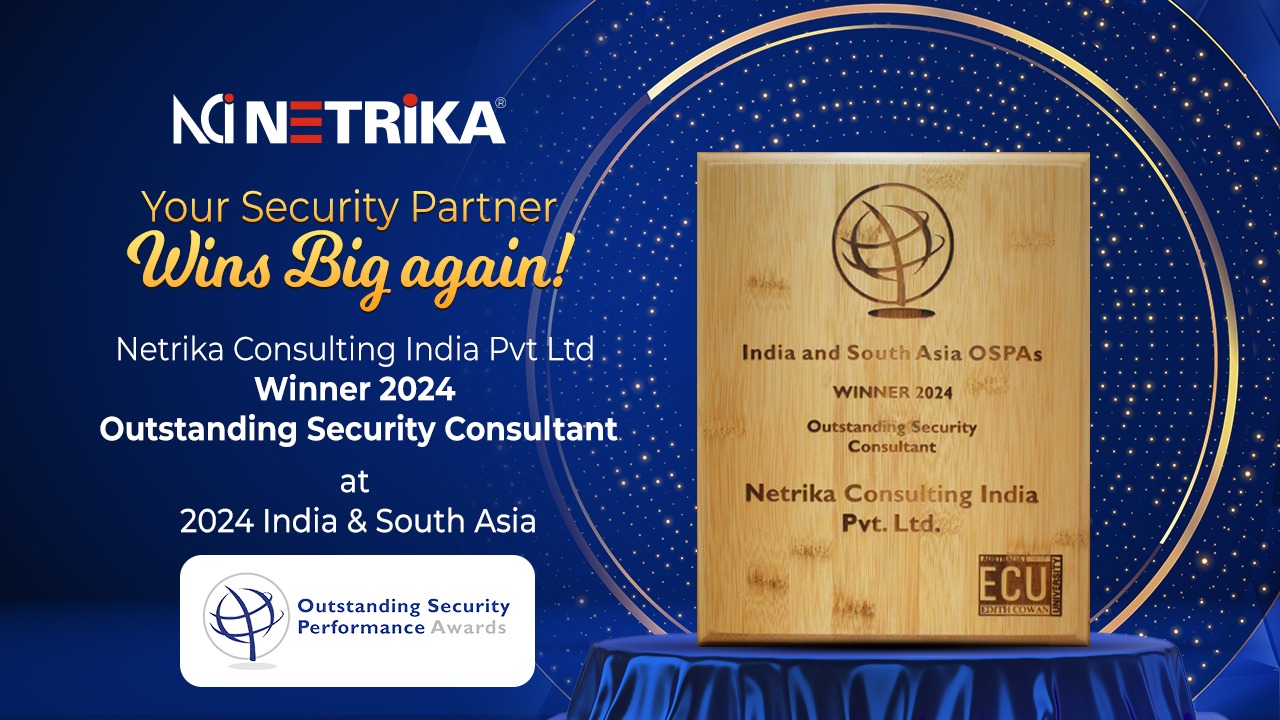News & Events
What is Supply Chain Management; Is it a Good Career Choice
- May 22, 2023
- Posted by: marketing@netrika.com
- Category: Blogs

Supply chain management focuses on the risk management of external suppliers, vendors, logistics, and transportation. It identifies, evaluates, and mitigates the risks associated with partnering with third-party organizations as part of your supply chain. It could include both physical security and software and device cybersecurity.
However, in order for a professional to sell their services, earn the professional competencies of a supply chain specialist, and open worldwide doors, they must first obtain a qualification in the sector. The supply chain security certificate allows the professional to put efforts and activities in place to establish and strengthen the supply chain security system in enterprises. To mitigate potential threats and dangers, the certificate authorizes the specialist to work on the organization’s end-to-end supply chain security nodes, which include warehousing, transportation, and logistics.
Is supply chain management a good career choice?
With each new technology and innovation, supply chain organisations have developed and will continue to evolve. Modern manufacturing lines are designed for efficiency and are outfitted with automated, programmable robots, which generate high-tech roles for humans. Similarly, today’s logistics, transportation, and distribution workers do far more than simply deliver boxes. They’re planning product movement up and down the supply chain, from the point of origin to the final customer and all points in between.
In the meantime, information flow professionals manage product information, order details, and financial data while collaborating with network partners. Procurement officers are building relationships with suppliers all across the world in order to obtain vital commodities on schedule and on budget. Demand planners are predicting the future by combining data analytics with prior experience. And inventory managers ensure that production, sales, and service continue uninterrupted.
As a result of the supply chain’s scaling cycle, managers that handle the supply chain’s security, protocols, audit, and policies are in constant demand.
The number of available supply chain positions has nearly doubled in the last two decades. A short web search reveals a plethora of job postings at Amazon, Apple, Flipkart, PepsiCo, Procter & Gamble, SpaceX, Target, and Tesla, among many other world-class corporations.
People are fast finding work in all sections of the supply chain. Whether fresh out of college or already working, one-third of job seekers claim they found work in less than a month. Within 90 days, more than half were working.
Even in the midst of a global pandemic, supply chain salaries stay stable. The average pay for persons entering supply chain is $60,000, according to ASCM’s 2021 Supply Chain pay and Career Report. Professionals with APICS/ASCM certifications earn a median income of $86,000 to $90,000 per year. In an encouraging move towards diversity and inclusion, the profession even closed the salary difference between men and women under the age of 40.
Importantly, supply chain provided job security during turbulent times. According to the survey, 95% of respondents held their employment during the pandemic, and 21% of those with an undergraduate degree and APICS/ASCM certification were even promoted.
Getting Ready for the supply chain management specialist course
Preparing for the supply chain security certification examination necessitates a thorough grasp of supply chain security as well as the ability to apply that knowledge to real-world settings. Netrika provides a variety of resources to help applicants prepare for the test, including study materials, training sessions, and practise exams.
Obtaining a supply chain management certification might be a wise investment in your career. However, it is critical to carefully weigh the cost-benefit ratio and ensure that acquiring a certification matches with your long-term career objectives. Gaining practical experience and continuing to develop your abilities in the sector is equally crucial, as a supply chain security certification does not ensure career success or job stability.

